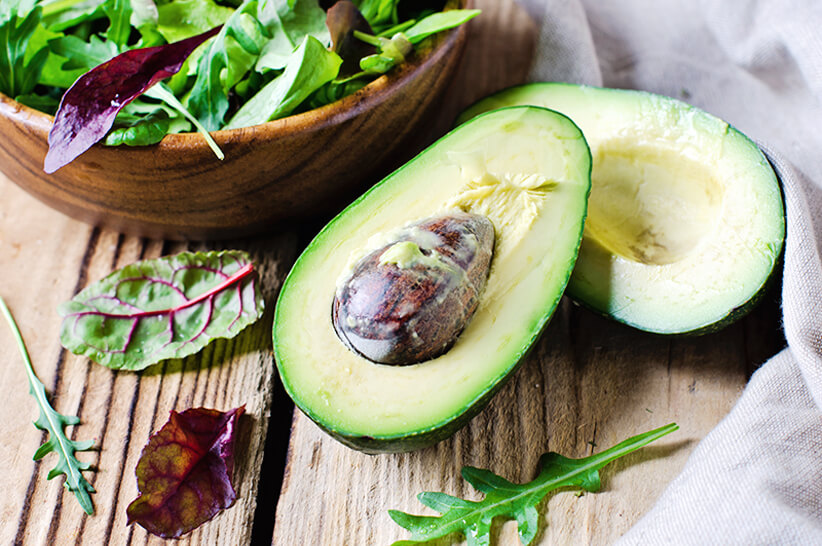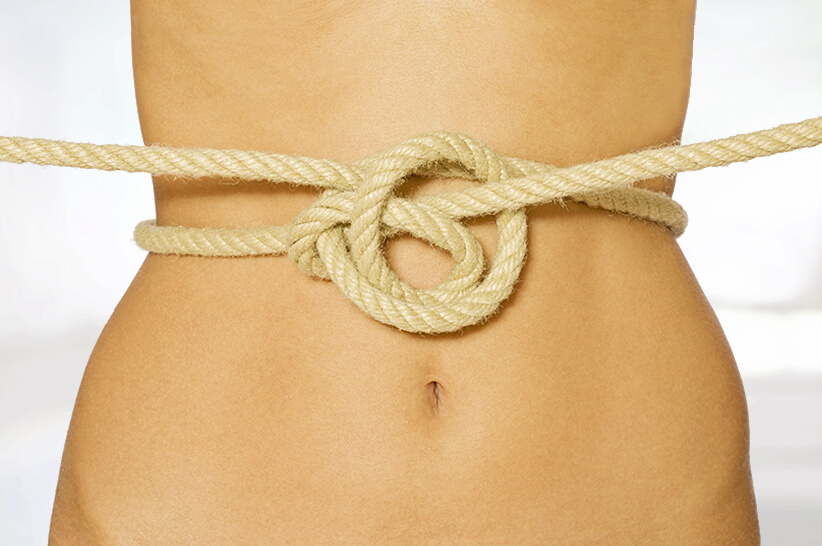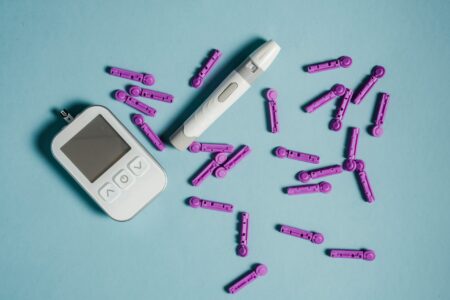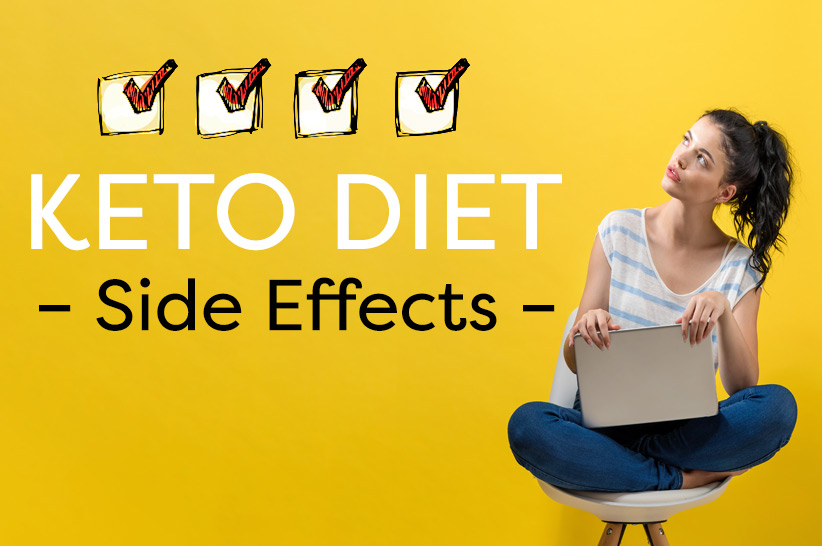These keto diet side effects happen as your body tries to adapt to its new fuel source – fat.
Before you experience the full benefits of the keto diet, your body experiences withdrawal and flu-like symptoms.
Many people are raving about keto nowadays. While the diet has benefits such as weight loss and a boost in energy, it also causes side effects to those who are new to it. Learn the seven keto diet side effects that you can expect at the start of your journey.
Keto Flu
One could ask, “What does keto diet do to your body?” Nutritional ketosis flu or simply “keto flu” is a common experience – it’s a collection of symptoms that are similar to the flu. Such symptoms include the following:
- Headache
- Brain fog
- Vomiting
- Weakness (especially during exercise)
- Muscle cramps
- Sore muscles
- Intense sugar cravings
- Irritability

Low sodium levels can cause headaches and other symptoms.
Ketosis flu happens as a direct result of reducing carbohydrates in your diet.
Here’s what happens: As you limit carbs, your kidneys eliminate excess water and along with that water is sodium, an essential electrolyte. The reduction of sodium can cause the symptoms mentioned above 1.
How to manage it:
Minimize or avoid these side effects of keto by simply increasing your salt intake by 1-2 grams per day. We also recommend drinking 1–2 cups of bouillon every day as one cube contains 1 gram of sodium 1.
Electrolyte Imbalance
As mentioned in #1, your kidneys eliminate electrolytes, especially sodium, when you drastically limit carbs.
The reason why this happens is that carbs in your body (in the form of glycogen) are stored along with water. So when you burn through those stored carbs, excess water gets flushed out in your urine as well 2.

Eating avocados and leafy greens helps replenish electrolytes.
Electrolytes are chemicals in your body that carry an electric charge. They include sodium, calcium, chloride, potassium, and magnesium. Present in your urine and body fluids, electrolytes play several important roles 3:
- Maintain the balance between consuming and excreting water
- Balances the pH level (acidity and alkalinity) in your body
- Removes wastes out of your cells
- Ensure that your organs function the way they should
How does an electrolyte imbalance manifest? You’re likely to experience symptoms such as heart palpitations, dizziness, leg cramps, and weakness. You’ll also be able to confirm an imbalance through an electrolyte test.
How to manage it:
It’s really simple. Replenish your electrolytes. Make sure that your daily diet includes low-carb whole foods that pack electrolytes. Examples include avocados, green leafy vegetables, nuts and seeds, and fatty fish.
If possible, supplement with a keto-friendly electrolyte drink. Supplementing can be very helpful if you sweat a lot due to the weather or exercising.

Constipation
Another one of the negative effects of keto is constipation. Being constipated on keto is no fun especially if you’re used to having a bowel movement daily!
Keto constipation happens as your digestive tract reacts to your new diet. Think about it: Changing your diet in any way can put stress on your GI tract. Also, when you cut back on carb-rich foods that contain fiber, such as whole grains and fruits, your bowel movements decrease.

But don’t worry. Constipation is temporary and can be resolved in no time with a few easy home remedies.
How to manage it:
Get plenty of fiber in your diet but make sure that these foods are keto-friendly. Examples are broccoli, cauliflower, asparagus, chia seeds, and unsweetened coconut meat. These are just a few of the many options.
Another hack is to drink more water throughout the day. Bring a bottle of water with you at work. Replenish your fluids after working out or going outside during the hot hours of the day.
Exercise also resolves constipation by promoting muscle contraction in your intestines.
Fun fact: You hit two birds with one stone by exercising. Because aside from easing constipation, exercise helps put you in a ketogenic state.
Keto Breath
Getting bad breath on keto? A lot of people who start the diet get ketone breath or ketosis breath.
Take note that this isn’t your typical bad breath. Rather, it’s characterized by a particular smell – one that’s fruity or acidic. Like nail polish remover. You may be asking, “But why does ketosis cause bad breath? How does it happen?”
Acetone, one of the ketones that your liver produces as a result of fat metabolism, appears in your exhaled breath.
Here’s good news: Study shows that increased breath acetone is strongly correlated with the rate of fat loss 4.
Does keto breath go away? Yes, it does, and often goes away on its own as your body adjusts to your diet. However, you may want to mitigate ketosis breath sooner to prevent people from noticing.

Acetone is responsible for that odor in your mouth (aka “keto breath”).
How to manage it:
Aside from brushing your teeth twice a day, make sure to floss. Use an oral rinse that’s designed for dry mouth (since dry mouth causes bad breath too). Consider natural breath fresheners such as Parsley and Sage.
Thirst

Combat water loss with proper hydration.
It’s not surprising to hear someone say, “I’m always thirsty on this low-carb diet!”
Ketogenic diet side effects such as thirst is a sign that you have entered ketosis. You’re feeling thirsty because your body is losing water. Remember eliminating that excess water due to glycogen depletion?
How to manage it:
Make it your goal to stay hydrated. Check the color of your urine often to ensure that you are properly hydrated. It should be light yellow or transparent.
Vitamin Deficiency
If you’re eliminating certain foods from your diet, you could end up with a vitamin deficiency. Common vitamin deficiencies on keto include:
- Vitamin A
- B vitamins
- Vitamin C
- Vitamin K
Becoming deficient in these vitamins can affect your mind, body, and energy.

For example, vitamin C deficiency causes weakness, irritability, and mental weariness 5. Meanwhile, vitamin B deficiencies can manifest as fatigue, depression, a lack of appetite, and tremors 6.
How to manage it:
The first step is to know which vitamins you’re likely to be deficient in. You’ll want to do some research to learn what vitamins are present in those high-carb foods you used to eat. Consume high amounts of low-carb alternatives that have those vitamins.
Getting vitamins from whole foods is the best approach. Yet, taking supplements will also help. This is especially true if you aren’t eating a wide variety of foods because you’re a vegetarian or vegan.
Fatigue
Is it safe to do keto diet when it causes fatigue? Experiencing fatigue is normal during the early stages of the diet. And the reason behind this is that your body is switching its fuel source – from carbohydrates to fat.
When you become fat-adapted (your body is now burning fat for fuel), you will get a boost in energy. You’ll be able to enjoy a steady stream of energy all day since your body can always tap into its stored fat.
Say goodby to those energy dips you used to have on a high-carb standard diet!

How to manage it:
Energy is essential to your day-to-day performance. Keep yourself properly hydrated and make sure you’re eating enough fat. Feeling tired? Get more hours of uninterrupted sleep at night.
You’ll probably experience one or more of these common keto side effects. Since you already know them, there’s no need for you to panic.
Takeaways
- How long do keto side effects last? These side effects should last until you reach full ketosis. Of course, the time varies by individual. Some people endure them for up to a week or less. Others may find themselves dealing with the side effects for a month.
- Watch out for these side effects and manage them using the tips we just shared. And while you do, remember that uncomfortable symptoms on keto are temporary. Health and fitness benefits are waiting for you on the other side.
- To be in your best possible health while on this low-carb lifestyle, we also recommend that you consult with your doctor before jumping in!










![Juicing for Weight Loss: Everything You Need to Know [Plus Recipes]](/wp-content/uploads/2019/08/Juicing-for-Weight-featured-image.jpg)








